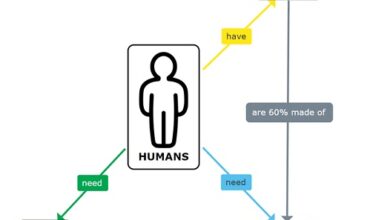Research Writing
Research Writing
Research writing is a process of inquiry that involves gathering and analyzing information in order to answer a question, solve a problem, or explore a topic. Research writing is often used in academic and professional contexts, such as in research papers, dissertations, reports, and articles.
The research writing process typically involves several stages. The first stage is selecting a research topic or question. This involves identifying a problem or area of inquiry that is of interest to the researcher and that has not already been extensively studied. The research question should be specific and focused, and should be framed in a way that can be answered through research.
The next stage is conducting a literature review. This involves gathering and analyzing existing research and scholarship on the topic of inquiry. The literature review provides the researcher with an understanding of what has already been studied, what gaps exist in the research, and what questions remain unanswered. The literature review also helps the researcher to identify key theories, concepts, and methodologies that will be relevant to their own research.
The third stage is developing a research design. This involves determining the methodology that will be used to gather data and answer the research question. The methodology may involve collecting data through surveys, interviews, observations, experiments, or other methods. The research design also includes developing a plan for analyzing the data that is collected.
The fourth stage is collecting and analyzing data. This involves actually carrying out the research, gathering data, and analyzing it in order to answer the research question. Data analysis may involve statistical analysis, qualitative analysis, or a combination of both.
The final stage is writing up the research findings. This involves communicating the results of the research in a clear, concise, and organized manner. The research report typically includes an introduction, literature review, methodology, results, discussion, and conclusion. The introduction provides an overview of the research question and the purpose of the study. The literature review summarizes the existing research on the topic. The methodology describes the research design and the methods used to gather and analyze data. The results section presents the findings of the research. The discussion section interprets the results and explains their significance. The conclusion summarizes the main findings and implications of the research.
Research writing is an important tool for generating new knowledge and understanding in a wide range of disciplines. It allows researchers to explore new ideas, test hypotheses, and make contributions to their fields. Moreover, research writing helps to promote critical thinking skills, as researchers must evaluate evidence, analyze data, and interpret results in order to draw conclusions. In addition, research writing plays an important role in professional development, as it allows researchers to communicate their findings to colleagues and stakeholders, and to contribute to ongoing debates and discussions in their fields.
-
What is scientific writing/importance/characteristics of scientific writing
What is scientific writing? In general, scientific writing is characterized from its own purpose: which is to communicate, in a way, the…
Read More » -
What is discourse analysis Foucault description usages How to do
What is discourse analysis? It is known that discourse is a linguistic construction that is related to the social context…
Read More » -
What is academic plagiarism/types/implication/checking/detectors
What is academic plagiarism? According to Ferreira (1999), plagiarism is signing or representing someone else’s artistic or scientific work as…
Read More » -
What are scientific journals/usages/importance/Where can I find
What are scientific journals? Journals are electronic publications with scientific research. As the name suggests, the editions follow a periodicity. That is:…
Read More » -
How to analyze an article/critical analysis/usages/9 steps
What is critical analysis? In general, critical analysis is an in-depth study of an article or any other type of…
Read More » -
What is participant observation/Criticism/usages/importance/5 Tips
What is participant observation? In general, participant observation is a type of data collection instrument , in which the researcher participates in the daily…
Read More » -
How to make a book summary/definition/features/record and review
What is a book summary? The general summary is a more objective and concise way to present the ideas of a specific…
Read More » -
Main areas of knowledge/importance/classification/main areas
What are knowledge areas? First of all, you need to understand what areas of knowledge are. The definition is quite simple:…
Read More » -

What is concept map vs Mind Map types requirement Step by step making
The concept map is a tool that graphically represents the relationships between the ideas of a theme . In other words: from the…
Read More » -
What are historical sources/Types/importance
Historical sources are elements that researchers and university students use to study History. That is: to investigate the origin, events and culture of people. So,…
Read More »